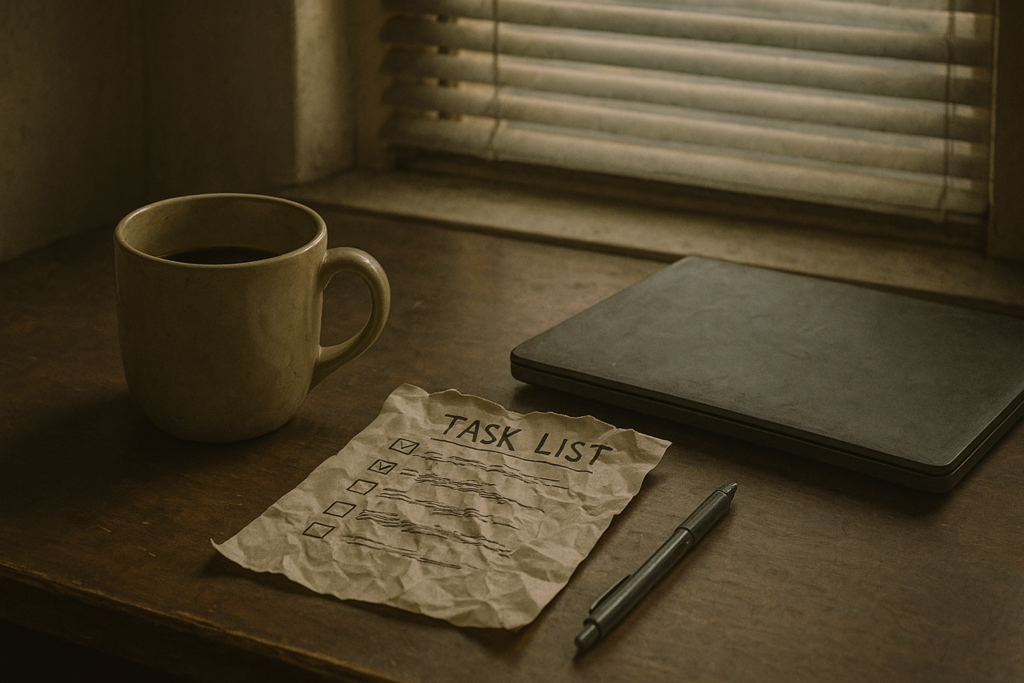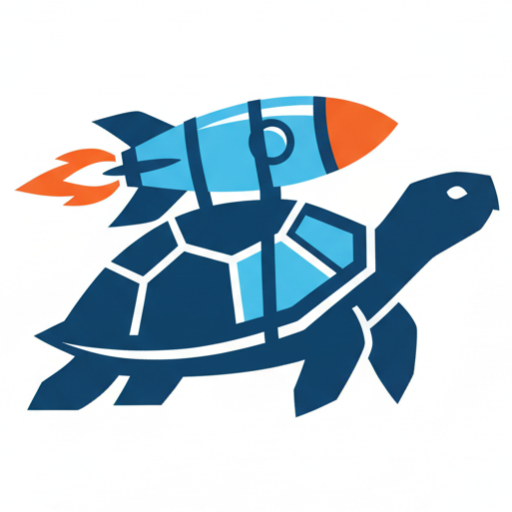
The Upgrade That Nearly Broke Me
Everyone tells you to build a better life. More energy. More discipline. More results.
What no one tells you is what happens when your body taps out before your to-do list does.
That’s where I was. Burnt out. Overstimulated. Crashing between fake resets. And still convinced that “getting better” was just one system away.
I stacked routines like bandages. Morning journaling. Screen timers. Low-carb sprints. Inbox zero. None of it helped. Most of it made me feel worse.
Because once you’re past a certain threshold, improvement stops being inspiring. It becomes threatening. Every optimization attempt becomes another way to punish yourself for not performing.
I didn’t need a better life. I needed one I could actually survive.
Stability Over Self-Improvement
The self-help trap is that it always assumes capacity. It tells you to reset, but doesn’t account for when you have nothing left to give.
I didn’t stop improving because I gave up.
I stopped because I was bleeding out and calling it “progress.”
Every time I tried to push forward, I unraveled faster. Routines broke down. Focus disappeared. I couldn’t recover because I never truly paused. I was in constant repair mode, pretending it was growth.
(Micromanaging Kills Momentum)
It clicked the day I asked myself: What if I’m not lazy or inconsistent? What if I’m just overloaded by design?
So I stopped forcing resets. And I started building something survivable instead.
What Stopped Working (And Why I Let It Die)
I let go of anything that added friction without recovery.
- Morning routines that made me dread mornings
- Meal plans I kept resetting every Monday out of guilt
- Workouts built for someone with sleep, fuel, and optimism
- Motivational advice written for people who’ve never hit zero
Most of what I let go of was rooted in a fantasy: that I could outperform exhaustion with structure alone.
(Why Most Productivity Systems Fail)
Letting go of “best practices” doesn’t make you weaker. It means you’ve stopped letting someone else’s playbook run your nervous system.
Survivable systems don’t depend on motivation.
They work even when you don’t.
What Survival Looks Like Now
This isn’t theoretical. This is how I live—and why it works.
I wake up at 9AM, now that school’s out for the kids. Before that, it was 6AM without fail. Doesn’t matter if I slept at 2 or 3. If my eyes open, I stand up.
Not because some quote told me to rise and grind.
Because I have to.
If there’s food, I eat. If not, I hydrate and wait until brunch at 10:30. No panic. No starvation logic. Just adapting.
I don’t time-block my work. I don’t color-code my calendar. I start with the thing that needs to be done—and I work until it’s done. That’s it.
No tracking. No fluff. Just execution.
Between tasks, I move.
Sometimes it’s a walk around the house.
Most days, it’s cleaning. Sweeping, mopping, fixing what’s out of place. I ask the kids to clean their rooms, but I handle most of the load. It’s not a workout. It’s my physical reset, my substitute for any gym I no longer have time or energy for.
At night, gaming is my cooldown. Not because I’m running away but because it gives my mind something to process without overthinking. It gives me peace.
My wife gets that. She respects it. And I respect her space too.
We don’t try to rewrite each other we complement each other.
When I lie down, it takes five minutes max. No melatonin. No rituals.
Maybe I’ll play a simple mobile game for a few minutes, then I’m gone.
Shutdown complete.
The Failures That Built This
Most of what works for me now came from failure.
There were weeks I tried to overhaul everything. Meal plans. Sleep cycles. Scheduled routines. Productivity trackers. They all backfired.
Some weeks, I forgot what I was even doing just bounced from task to task with no clarity.
It wasn’t ADHD. It was burnout, plain and simple.
(Why You Can’t Focus? It’s Not ADHD—It’s Burnout)
Other times, I felt the pressure mount so high that I just froze. Not because I didn’t care, but because the sheer number of “important” things crushed the space I needed to think clearly.
And when I missed something, I didn’t lie. I didn’t blame.
If it was work, I told the team. No sob stories, just context.
We adapted together.
If it was at home, I spent time where it mattered. With my family. With myself.
Not numbing out. Just being real.
(Where Do Men Put Their Pain?)
That honesty is what built the routine I have now not strategy decks or productivity books.
What a Survivable Life Routine Actually Looks Like
This isn’t a checklist. It’s a system that doesn’t fall apart when I miss a beat.
1. My routine is boring and that’s the point.
Same wake-up time. Same meals. I don’t optimize it. I don’t measure it. I let rhythm carry the weight I can’t.
2. My energy is blocked, not stretched.
I give my best hours to critical work. After that, the answer is “no.” No to extra calls. No to unfinished favors. No to optional problems.
(The Productivity Lie)
3. My movement is utility, not identity.
No gym. No challenge. I clean. I carry. I fix what’s broken in the house. It resets me physically without becoming another thing to track.
4. My red flags are systems, not moods.
If I’m resisting something for five days straight, it’s not a discipline issue, it’s a mismatch.
(The Art of Doing Nothing)
5. My rules change, but the floor never falls out.
Some days I move fast. Some days I coast. But the routine never demands that I “show up like a high performer.” It just asks me to keep showing up, period.
Not a Reset, Just a System That Doesn’t Collapse
I used to think surviving meant failing.
Now I understand it means I stopped chasing routines designed for people with more margin, more sleep, and less chaos. I started designing a survivable life routine not a better life fantasy.
I’m not optimizing. I’m absorbing. I’m healing on the move. I’m building around the weight, not pretending it’s gone.
(Productivity Identity Crisis)
Some days that means getting things done.
Other days it means not falling apart.
And both count.
I’m Not Here to Thrive. I’m Here to Last.
Thriving can wait. Reinvention can wait. I don’t need an empire, I need a system that doesn’t break when I miss a morning, drop a ball, or need a day off.
This isn’t settling. It’s stabilization.
I’m not here to outperform.
I’m here to stop collapsing.
(The Lie of Hustle Culture)
And for the first time in years, that’s enough.
This is what happens when you’re working while depleted when you’re expected to perform under conditions that aren’t acknowledged.

